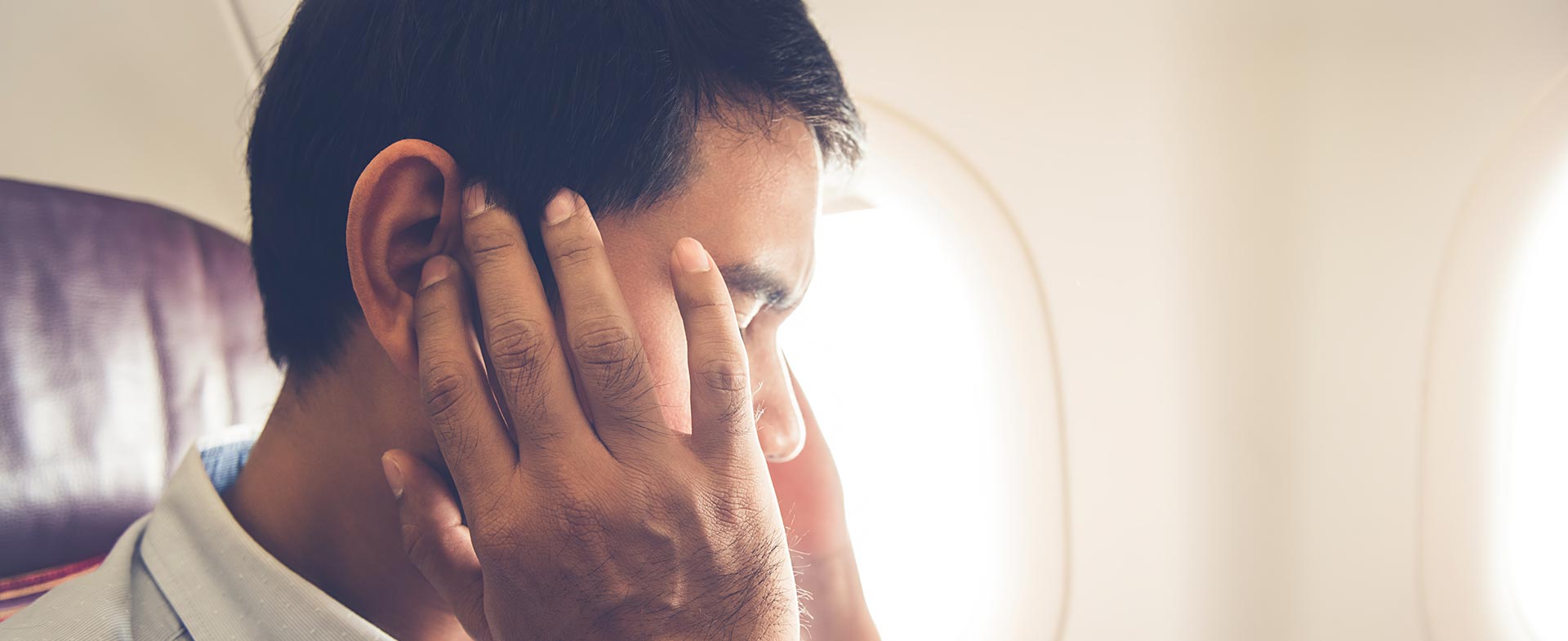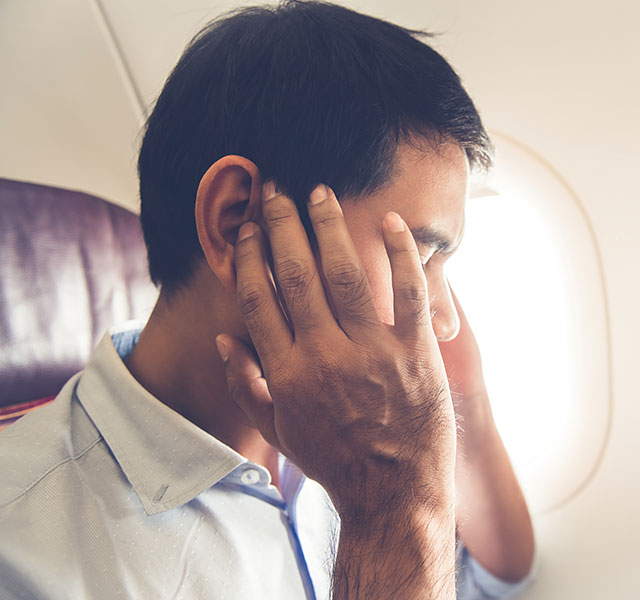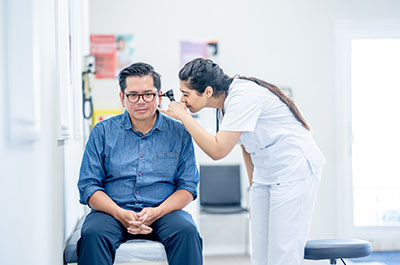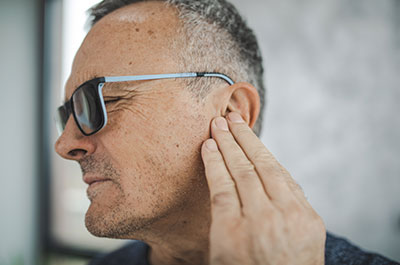We’ve all experienced the sensation at some point while on an airplane, driving up a steep mountain road or even ascending in an elevator. Suddenly, pressure builds up, your ears feel clogged, and it may sound like you’re trying to hear with your head underwater. And as you change elevation again, you may feel your ears popping.
“That popping sensation can feel strange—and sometimes even feel a bit painful—but it’s rarely a cause for concern,” says Rachel Bollman, P.A., a physician assistant at Henry Ford Health.
Causes Of Clogged Ears
When you experience clogged and popping ears, it’s usually a result of the change in air pressure around you. “As the air pressure changes, more pressure is pushing on the eardrums from outside,” says Bollman. “When the inside tries to equalize or undo that pressure, it makes the ears pop."
The eustachian tubes connect your ears to the back of your nose. Their job is to help equalize pressure behind the eardrum. When you quickly go up or down in elevation—such as on an airplane—the tubes can’t always relieve that pressure as fast as it’s building up.
The eustachian tubes can also become clogged when you have nasal congestion. “When you have a cold, fluid and pressure can build up in the middle ear space,” says Bollman. “And it can sometimes be difficult to get the eustachian tubes working again.”
How To Relieve Pressure In The Ears
Luckily, it’s usually pretty easy to resolve the clogging sensation and get your ears to pop. There are a variety of techniques you can try to help equalize the pressure in your ears.
These easy remedies are often all you need to pop your ears:
- Blowing your nose: This trick is called the Valsalva maneuver. It involves plugging your nose while blowing out so that your cheeks puff out. This technique can be especially effective when the plugging is caused by congestion.
- Chewing gum: The motion of chewing and swallowing more can help equalize the pressure and lead to your ears popping.
- Swallowing: For babies and young children whose ears hurt while driving or flying, letting them drink from a bottle or suck on a lollipop can help.
- Yawning: Yawning changes the pressure on the eustachian tubes, which can help ears pop.
- Over-the-counter medications: If nothing else helps relieve the clogging, Bollman suggests using a nasal steroid spray (such as Flonase). “It hits the tube opening at the back of your nose and helps decrease inflammation and congestion,” she says. If you need to fly while congested (which increases the risk of painful ear clogging), she recommends Afrin nasal spray. “It’s a more powerful decongestant, but it’s only safe to use for a couple days at a time,” says Bollman. “You can use it the night before and day of a flight, if needed.”
When To See A Doctor About Ear Popping

In most cases, pressure build-up in the ears is temporary and resolves on its own without causing any serious damage. But there are situations that might require a trip to the doctor to get your ears checked out.
“Having your ears clog up and then pop is normal,” says Bollman. “The only reason we’d be concerned is if they don’t pop after a period of time.” When the pressure built up in the eardrum isn’t equalized by popping, it could be because there is fluid stuck behind the eardrum.
Symptoms of clogged ears can include:
- Dizziness
- Muffled sounds
- Pain or pressure in your ears
“Typically, any hearing loss associated with plugged ears is temporary,” says Bollman. Your doctor can check for fluid in the ears. If the fluid isn’t draining on its own after a couple of months, they might recommend an in-office procedure to drain it. “We insert a small tube into the ear drum which allows the fluid to come out and the pressure to equalize,” she says.
Reviewed by Rachel Bollman, a physician assistant who sees patients at Henry Ford Medical Center - Lakeside.



